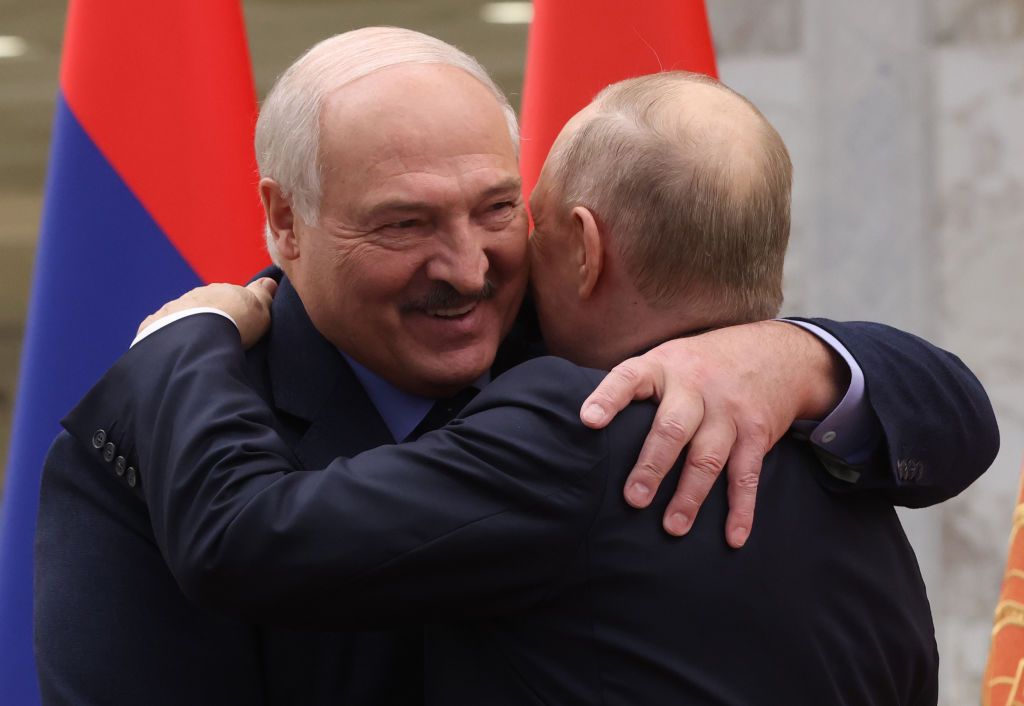Putin signs decree to increase size of Russian army by 170,000.
Russian President Vladimir Putin signed a decree on Dec.
1 to increase the size of Russia's army by 170,000 people, bringing it to a new total of 1,320,000 military personnel. Russia's Defense Ministry also commented on the decree, saying that it was a response to an "increase in threats" that are associated with its full-scale war in Ukraine, as well as "ongoing NATO expansion." The ministry also claimed that NATO was expanding its nuclear capabilities.
The increase in the size of the army was an appropriate response to the "aggressive activities of NATO," it concluded. The New York Times reported in August, citing U.S. officials, that Russian military casualties approached 300,000. Those numbers included around 120,000 deaths and 170,000 to 180,000 injured.
Claims that NATO is an aggressor have been widely debunked but are a regular part of Russian propaganda and a common refrain in Russia's justification of the full-scale invasion. NATO is a voluntary alliance, in that members choose to join, and their accession must be approved unanimously. Early on in Putin's rule, as the Baltic nations were seeking to join the alliance, he was not so firmly against the expansion or opposed to having three new NATO members on Russia's border.
Although he said that NATO accession would not improve their security situation, Putin said in 2002 that the Baltics joining the alliance was "no tragedy." Two decades later, after the beginning of the full-scale invasion, Sweden and Finland announced their desire to join the alliance. Putin said in May 2022 that their accession would create "no direct threat for Russia."
Finland officially joined NATO as its 31st member on April 4, 2023. Sweden's bid has been complicated by delays from Turkey and Hungary, although both countries have signaled they will eventually approve its accession. There are no nuclear-armed powers on Russia's border apart from China and North Korea.
The U.S. has deployed nuclear weapons in Turkey since 1959, but the remainder of NATO's nuclear capabilities are located in Western Europe. On the other hand, Russia has moved some of its own nuclear weapons into neighboring Belarus since the beginning of the full-scale invasion, and Russian officials, including Putin, have made numerous nuclear threats against NATO countries and Ukraine. Putin also signed a law on Nov.
2 revoking Russia's ratification of the Comprehensive Nuclear-Test-Ban Treaty (CTBT). Russia signed the CTBT in 1996 and ratified it in 2000. No country besides North Korea has officially conducted a nuclear test in 25 years.
Belarus Weekly: Putin attends the CSTO summit in Minsk, Armenia skips
Belarus hosts the CSTO summit, with the notable attendance of Russian President Vladimir Putin and the absence of Armenia's representative.
Ukraine imposes sanctions on Russian and Belarusian defense sectors for 50 years after the end of the war.
The OSCE designates Malta as the organization's hea...
